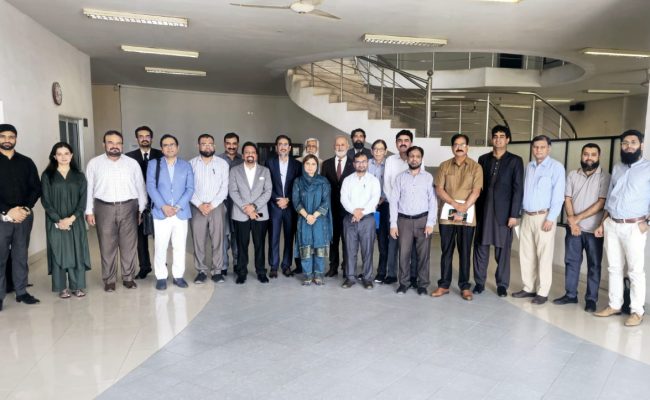By The World Ambassador
TWA
______
In a ground breaking development to address diet related non communicated diseases, Ministry of National Health Services, Regulations and Coordination, civil society, regulatory bodies, academicians, and public health advocates pleaded a case for empowering consumers through enactment of front of pack warning labels (FOPWL) on ultra-processed food and beverage products high in ingredients of public health concern.
Pakistan Standards and Quality Control Authority organized a meeting of their technical committee to discuss the proposal submitted by the Ministry of Health developed on scientific principles of global best practices by consulting the local and international evidence. The proposal is aimed at reducing the consumption of ultra-processed junk foods to consumers, as a part of their efforts to address the growing burden of non-communicable diseases.
Pakistan is currently grappling with a national health emergency due to the alarming rise in non-communicable diseases (NCDs), including diabetes, cardiovascular conditions, obesity, and chronic liver and kidney diseases. A significant contributor to this crisis is the increased consumption of ultra-processed food and beverage products. According to the International Diabetes Federation (IDF) Diabetes Atlas 2025, Pakistan now ranks first globally in diabetes prevalence, with 31.4% of adults living with disease. Over 230,000 deaths annually are linked to diabetes-related complications, with more than nine million people undiagnosed—a situation that demands urgent and decisive policy action. This number is set to reach at 70 million, if no immediate policy action taken.
Pakistan National Heart Association (PANAH), Heatfile, Center for Peace and Development Initiatives, Pakistan Youth Change Advocates, Impact Research, and other civil society organizations appreciated Ministry of Health and PSQCA on this initiative and supported the proposal. The intended policy change for adopting WHO recommended nutrient profile model and front of pack warning labels on foods high in salt, sugar, fats or those containing non sugar sweeteners has the potential to save precious lives of thousands of Pakistanis every year.
The research shows that adoption of clear Front-of-Pack Warning Labels on ultra-processed food empowers consumers to adopt healthier food choices. Evidence from countries like Chile, Mexico and other countries shows that FOPWL significantly reduces the consumption of unhealthy products, including sugary drinks and processed foods.
The National Assembly’s Standing Committee on Health has directed the Ministry of National Health Services and the Ministry of Science and Technology to move swiftly toward the enactment of FOPWL regulations. Following this directive, the Pakistan Standards and Quality Control Authority (PSQCA) convened a meeting in Karachi, bringing together representatives from government bodies, food authorities, academia, consumer groups, civil society, and industry stakeholders. To move forward, PSQCA has formed a special sub-committee of experts, tasked with reviewing all key questions and concerns based on scientific evidence to help introduced a stronger FOPWL policy.
All stakeholders have been instructed to submit their positions or concerns in writing within 15 days. The expert committee shall review and address those questions based on the local and international evidence and global best practices.
The public health experts however raised an alarm on the heavy representation of the food and beverage industry in the technical committee which may be barrier in adopting evidence based policies due to direct or indirect conflict of interest. The public health advocates recommended adopted global best practices to prevent conflict of interest in the policy making process. They pleaded adopting policies in the best interest of public health instead of corporate gains


